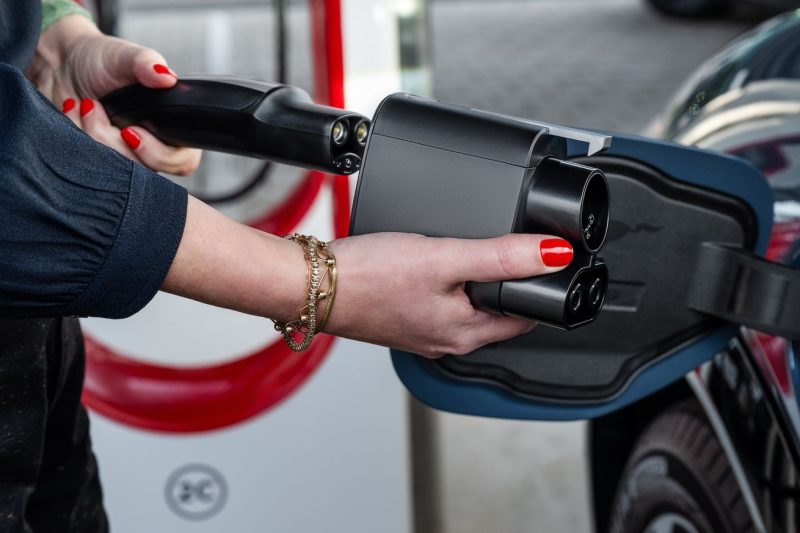
Ford Cautioning EV Owners: Drop the Tesla Supercharger Adapter!
Ford Tells Some EV Customers to Stop Using its Tesla Supercharger Adapter
In a surprising move that has sparked debate across the electric vehicle community, Ford has issued a warning to some of its customers to cease using a third-party adapter that allows Ford vehicles to make use of Tesla’s extensive Supercharger network. This development marks a significant turn of events as Ford looks to establish itself as a major player in the EV market, particularly in light of increasing competition from Tesla and other automakers.
The issue at hand revolves around the compatibility of Ford Mustang Mach-E and Ford F-150 Lightning models with Tesla Superchargers, which are widely regarded as some of the most efficient and reliable fast-charging stations available to EV owners. Some Ford customers have been using a third-party adapter to connect their vehicles to Tesla Superchargers, effectively allowing them to charge their Ford EVs at these locations without any issues.
While this workaround has provided Ford customers with greater convenience and access to Tesla’s expansive charging infrastructure, Ford has recently raised concerns about the safety and potential risks associated with using non-official charging equipment. Ford urges its customers to use only certified charging accessories that have been tested and approved for use with their vehicles to avoid any potential hazards or damage to the vehicles’ electrical systems.
The decision by Ford to discourage the use of the Tesla Supercharger adapter has sparked mixed reactions from the EV community, with some applauding Ford’s commitment to safety and standardization, while others criticize the move for limiting consumer choice and convenience. Some Ford owners who have been using the third-party adapter to charge their vehicles at Tesla Superchargers now find themselves in a dilemma, unsure of whether to comply with Ford’s warning or continue with their current charging setup.
This situation highlights the ongoing challenges and complexities surrounding charging infrastructure in the rapidly evolving EV market. As automakers strive to expand their electric vehicle offerings and make charging more accessible to consumers, issues of compatibility, safety, and regulatory compliance are likely to become increasingly prevalent. The case of Ford advising its customers to avoid using the Tesla Supercharger adapter underscores the importance of adhering to manufacturers’ guidelines and recommendations to ensure the optimal performance and safety of EVs.
Moving forward, it remains to be seen how Ford will address the concerns raised by its customers regarding charging options and compatibility with third-party equipment. As the EV landscape continues to evolve, automakers will need to strike a balance between innovation, convenience, and safety to meet the needs of consumers while upholding industry standards and regulations. In the meantime, Ford EV owners are advised to stay informed and follow official guidance from the manufacturer to ensure a seamless and secure charging experience.
